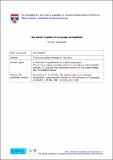The global regime of language recognition
Abstract
There is no universally accepted working linguistic definition of a language; the distinction between a dialect and a language is a political question. On the basis of a discussion of this problem, the article proposes that the ISO 639 family of standards, issued by the International Organization for Standardization (ISO), amounts to the backbone of an emerging global regime of language recognition. This regime is being rapidly coaxed into being by the booming IT industry and by the Internet, both of which require clear-cut and uniform standards on languages and their scripts in order to function efficiently and profitably. A potentially undesirable and divisive foundation of the regulatory regime, stemming from and meeting the distinctive sectoral purposes of the world of Evangelicalism and Bible translation, is a hurdle to be overcome in achieving a universally accepted system of language standards. Despite efforts by other actors, there is no viable secular alternative in prospect, because the religiously-grounded system has an established and substantial “first mover” advantage in the field.
Citation
Kamusella , T D 2012 , ' The global regime of language recognition ' , International Journal of the Sociology of Language , vol. 2012 , no. 218 , pp. 59-86 . https://doi.org/10.1515/ijsl-2012-0059
Publication
International Journal of the Sociology of Language
Status
Peer reviewed
ISSN
0165-2516Type
Journal article
Collections
Items in the St Andrews Research Repository are protected by copyright, with all rights reserved, unless otherwise indicated.

